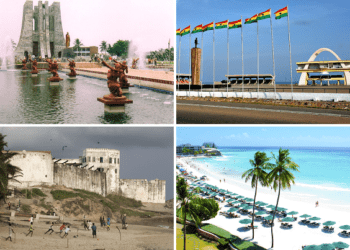The Dean of the Department of Communication at the University of Ghana, Professor Audrey Gadzekpo, has expressed worry over political capture of the media landscape in the country.
Presenting the findings of a research conducted by the Department of Communication of the University of Ghana, which revealed that there was an increasing concentration of the media in the hands of partisan actors who controlled the public space through their media empires, she indicated that this does not bode well for media practice in the country.
“We find the political capture of the broadcast media space, in particular, and the increasing concentration of the media in a few hands as worrying for the country’s democracy, and there is the need to address this situation.”
Professor Audrey Gadzekpo
The study, dubbed: ‘The State of the Ghanaian Media Report”, stressed that although there was a semblance of media pluralism in the country, the media was already concentrated in “a few powerful hands”.
The research, conducted in collaboration with the Media Foundation for West Africa (MfWA), with funding support from the U.S Embassy and the College of Education of the University of Ghana, provided scientific evidence on the ownership of the media, financial viability of media organisations, working conditions of journalists, safety issues, professional practices as well as training and capacity building.
Elaborating on the report, Prof. Gadzekpo stated that the study revealed that media ownership in the country was shrouded in opacity, with political faces found to be behind most of the broadcast media entities. She highlighted that while there were growing tendency towards media empire-building, the National Communication Authority (NCA) had a laissez faire attitude to questions about transparency of the media ownership.
“Political faces behind broadcast media ownership mean that partisan actors and governments can control public discourse, and this is not good for our democracy.”
Professor Audrey Gadzekpo
The study also found that most of the media organisations were not financially viable and only hanged on to thin straws to be in business. To this, she noted that generally, many organisations in Ghana are not profitable and are, at best, breaking even and cannot fund investigative reports because of the cost involved.
Furthermore, Prof Gadzekpo highlighted that the study found that the traditional media organisations were heavily dependent on the pharmaceutical industry, especially herbal products, for adverts.
In terms of working conditions of the media, the study found that journalists worked in precarious conditions, with some of them working without any contract or receiving salary at all.
Working conditions of journalist
The report further revealed that most media organisations had poor recruitment practices with some of them hiring journalists without advertising for qualified people to apply. Also, it was found that many media establishments did not have structured remuneration system, with conditions of service based on “who brought you”.
Reacting to this, Prof. Gadzekpo stated that it was discovered that in most of the media houses, there was no clear-cut promotion mechanisms.
Furthermore, the report found that salaries of journalists were “shockingly low”, averaging GHC1000 while some of them received GHC500 or no pay at all.
“This situation is promoting the culture of ‘soli’ where journalists take money in the name of transport fare.”
Report
Additionally, Prof Gadzekpo noted that while just a handful of media organisations had healthcare systems for their workers, almost all of them had no counselling support mechanisms for journalists who suffered trauma.
Touching on the safety of journalists, the report said there was growing insecurity among journalists in the country as violations against them were rife. It added that while male journalists were found to be mostly at risk of physical attacks, their female counterparts suffered more in terms of online abuse.
“Investigative journalists are the most at risk of attack and state actors, including political appointees and police, are the worst perpetrators of attacks on journalists.”
Report
Prof. Gadzekpo stated that the report also found that many journalists had the feeling that law enforcement agencies and the judiciary did very little to protect their safety.




















